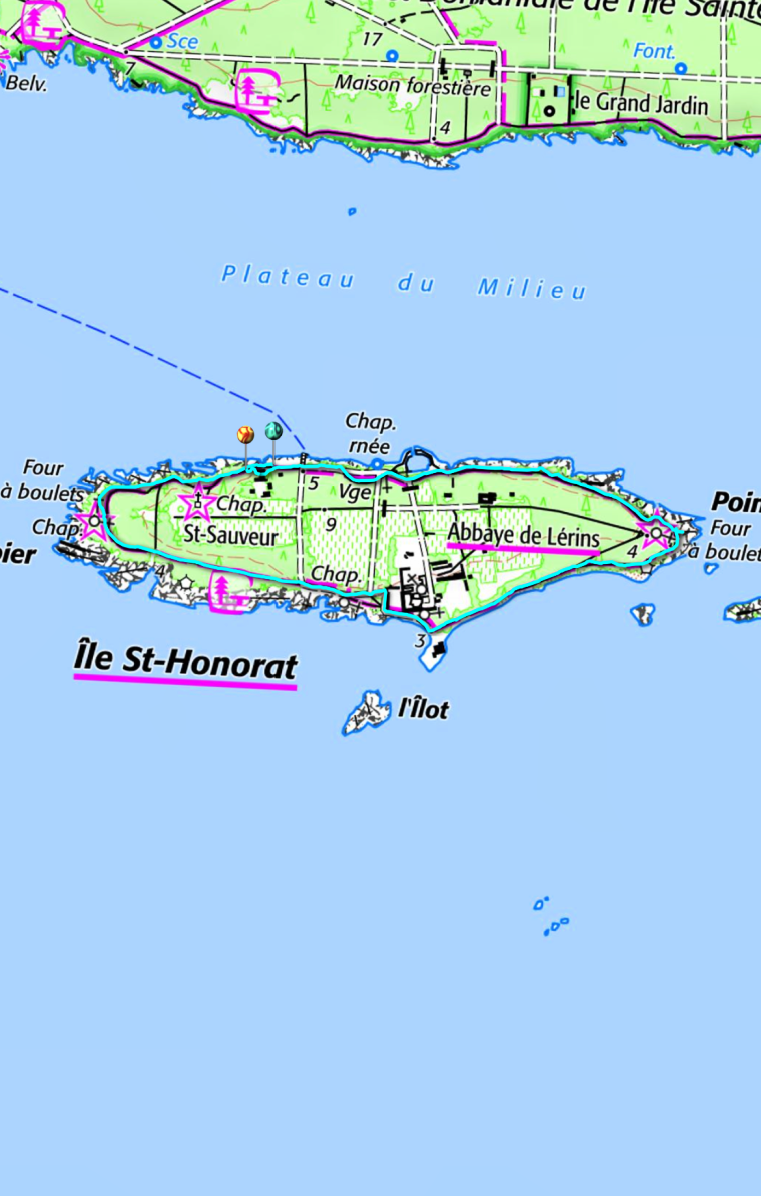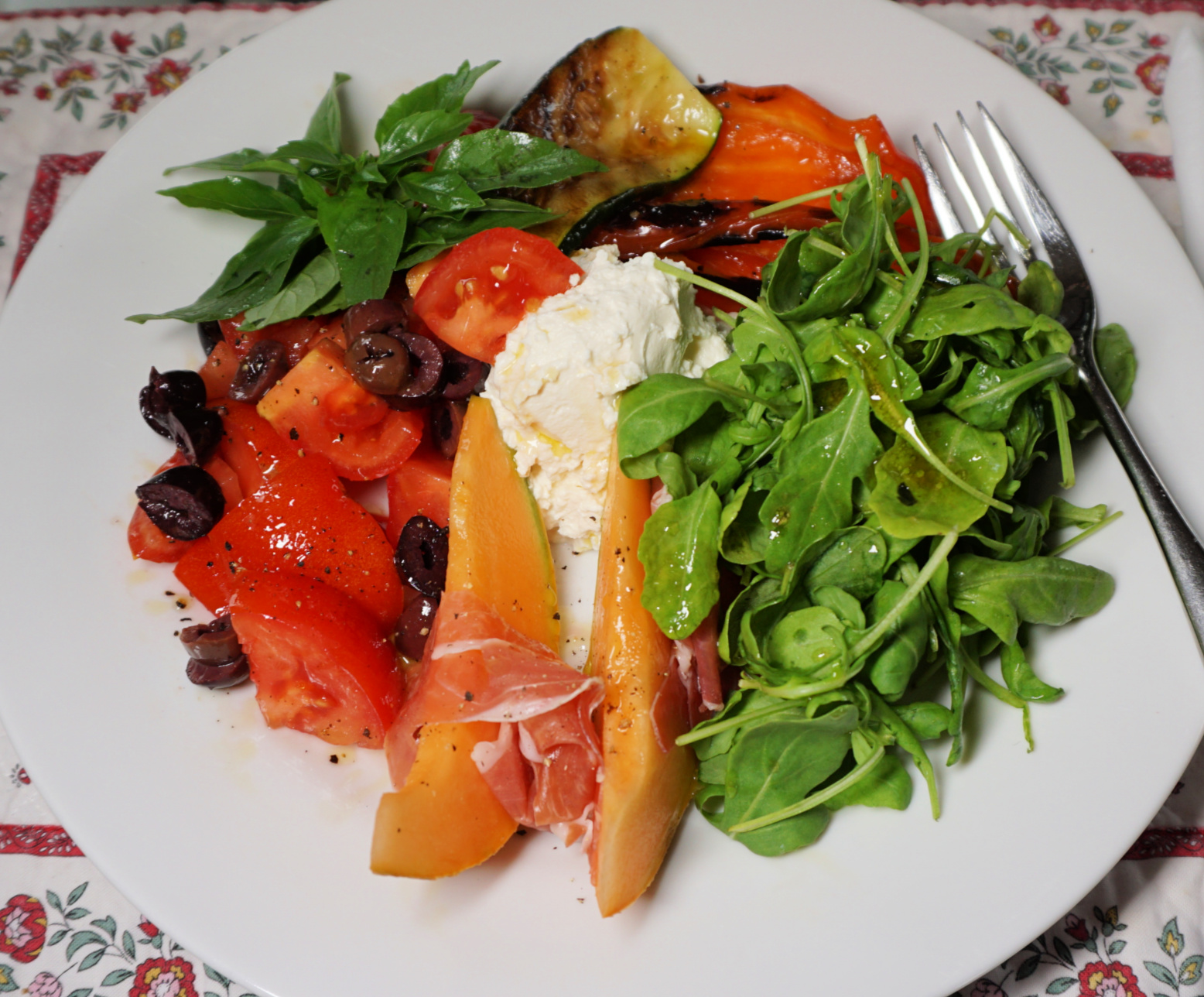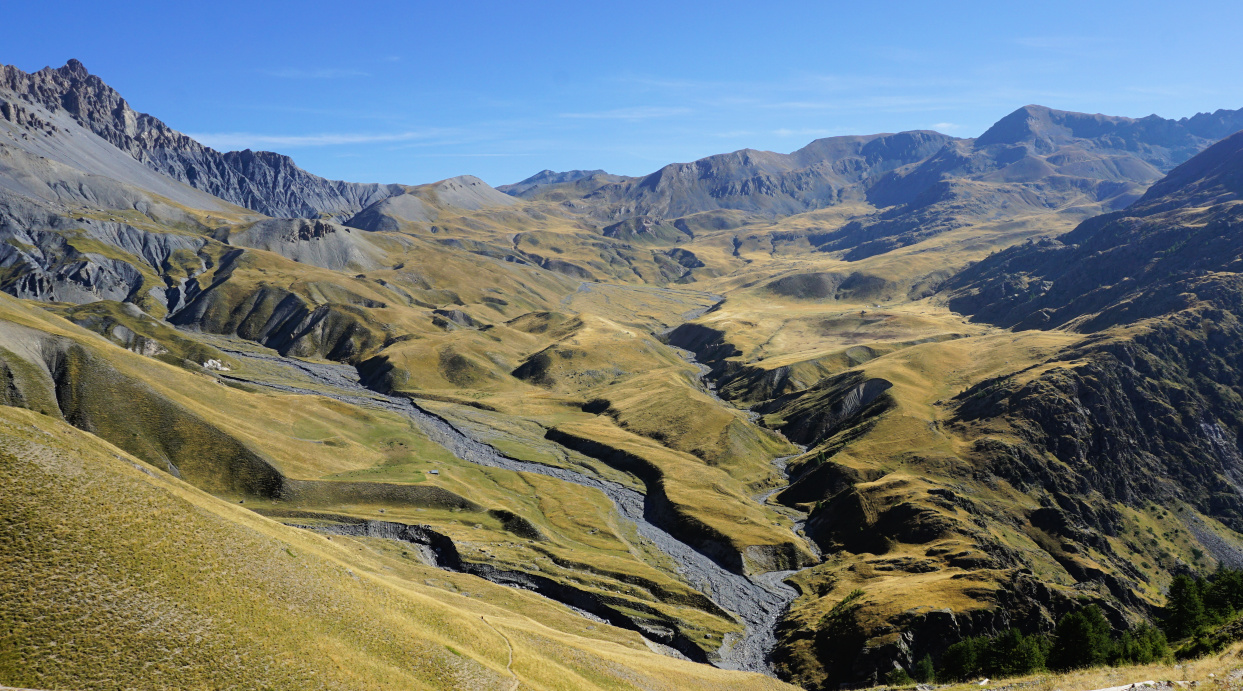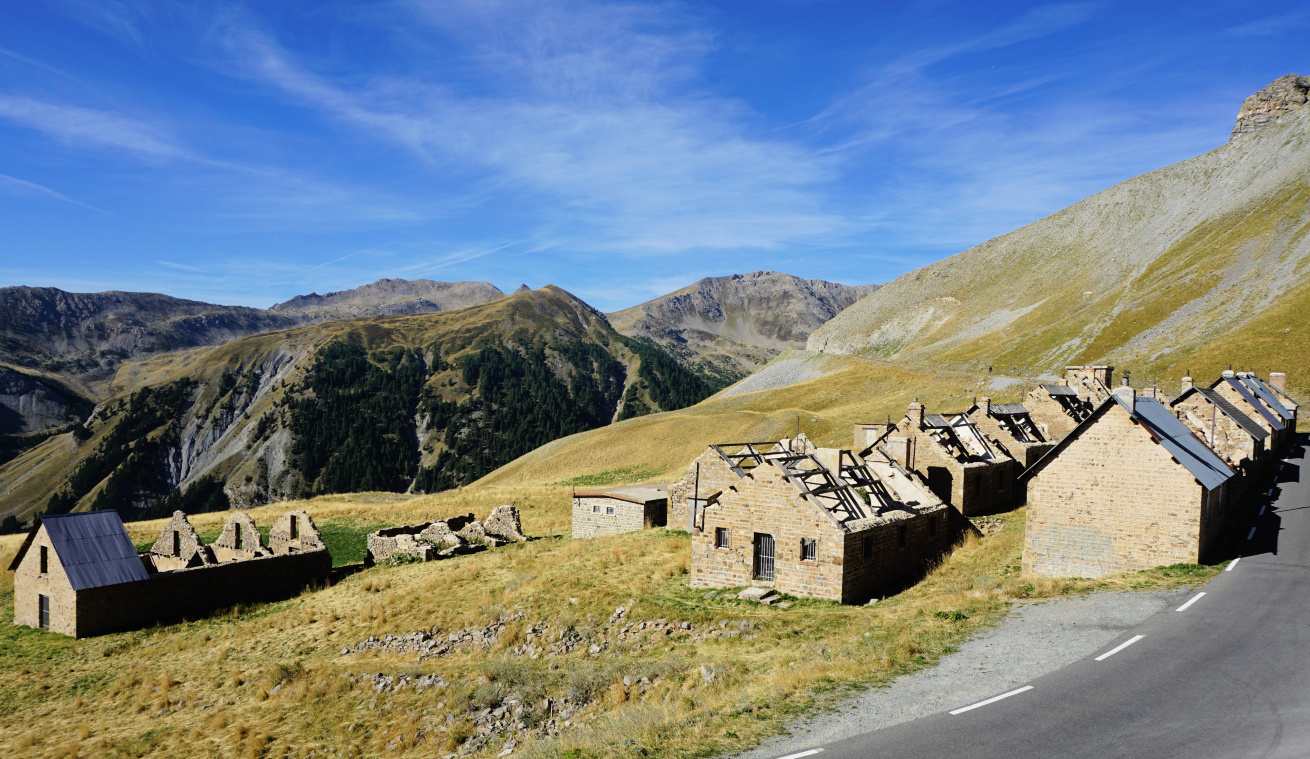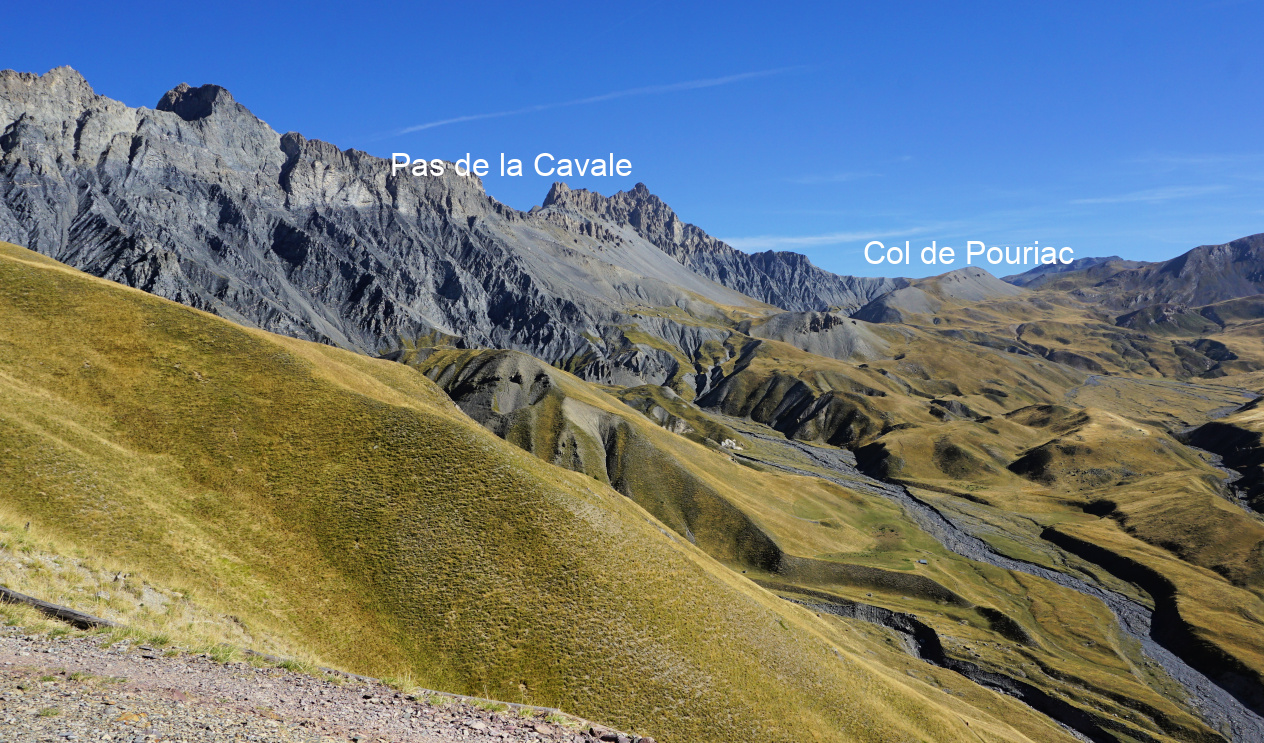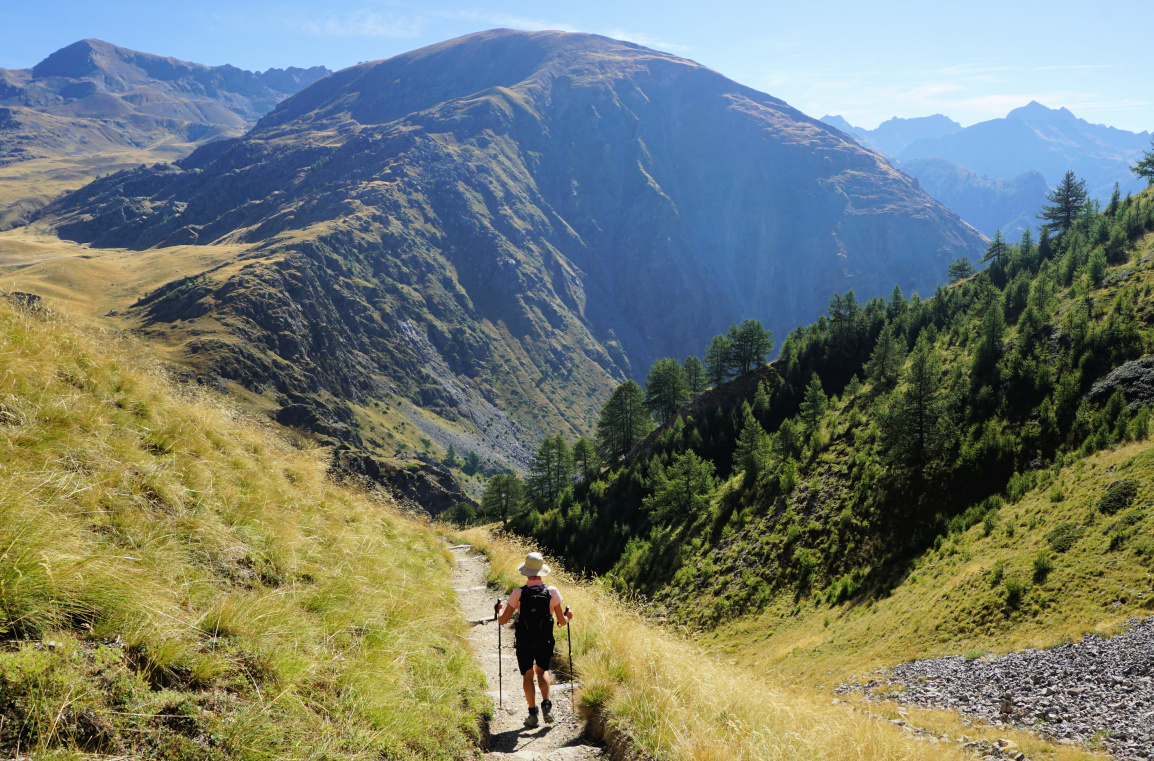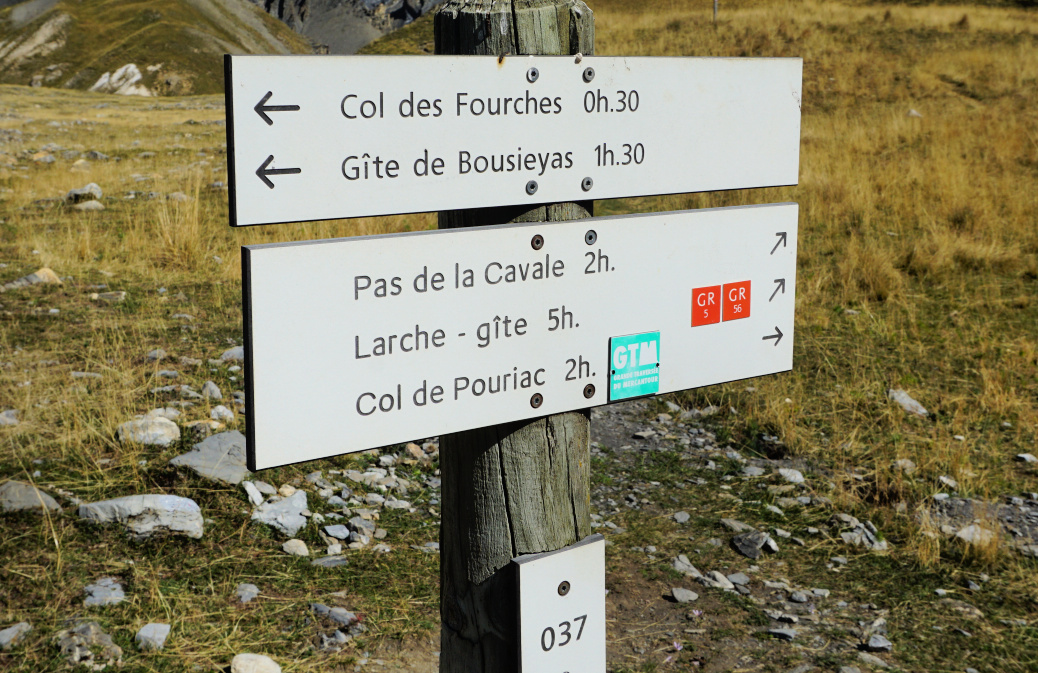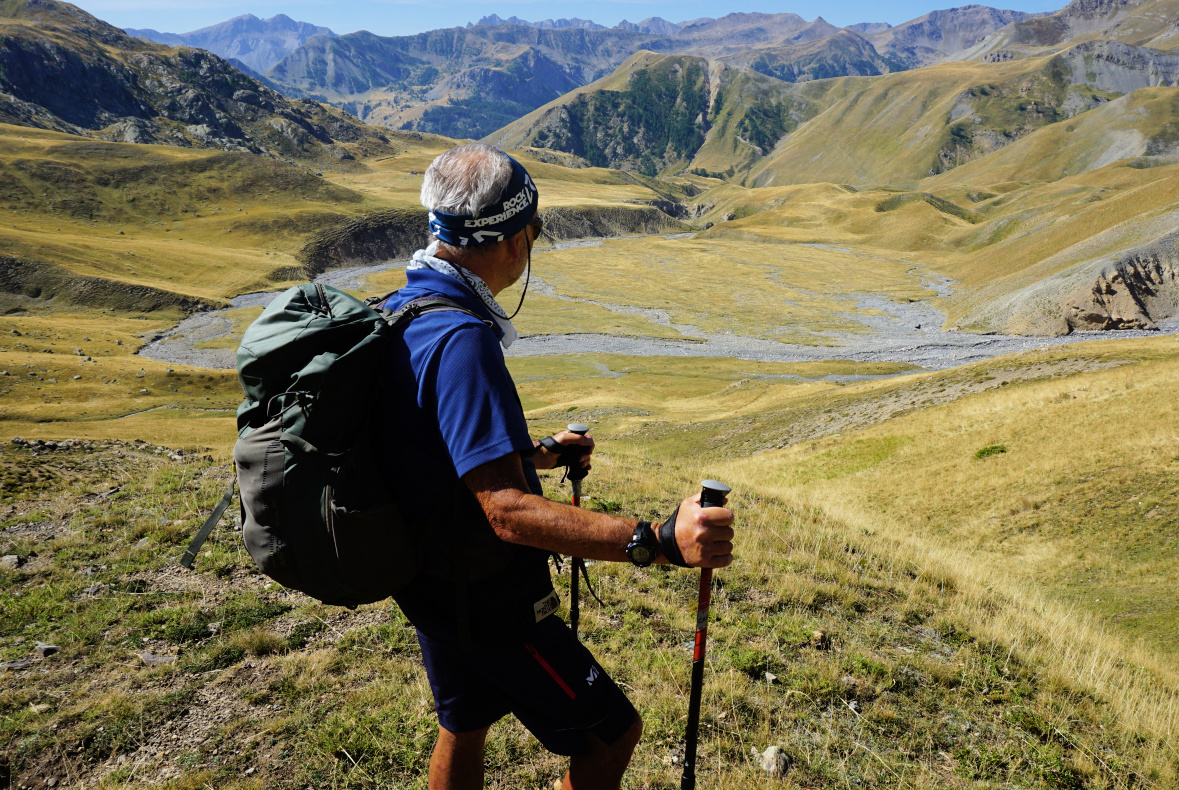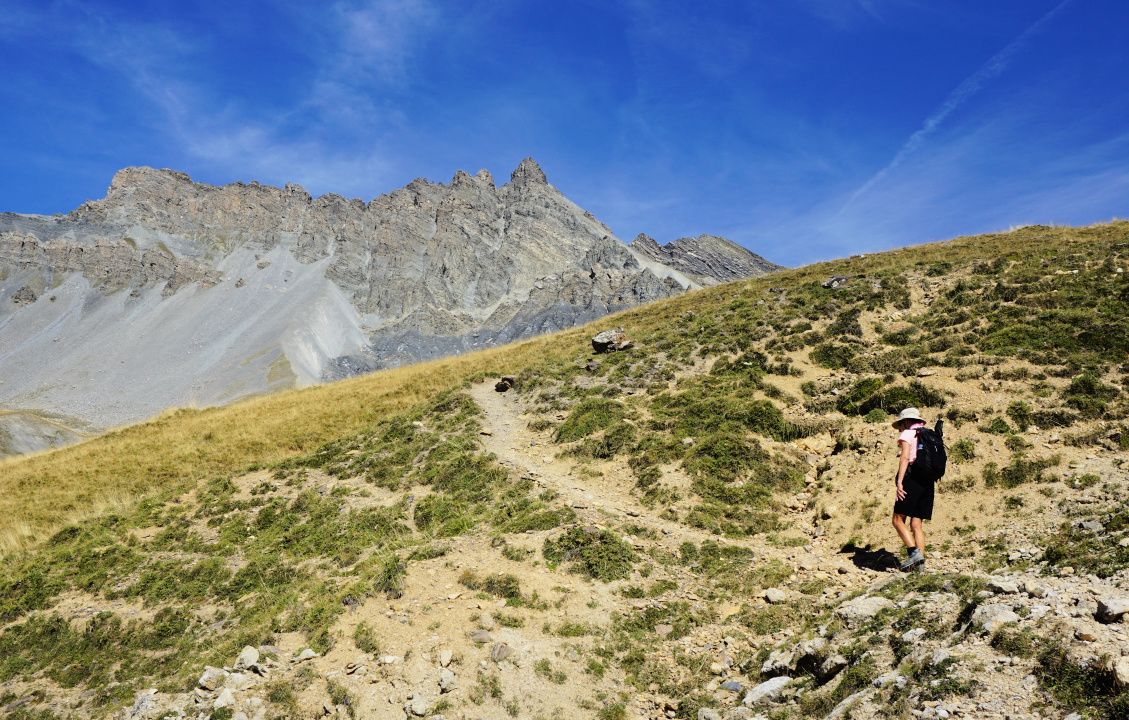In Vaucluse(84), the
Terra Rando
Guide offers over 150 hiking itineraries from short walks to more demanding
routes.
Malaucène is mainly known as one of the gateways to
Mont Ventoux, and not surprisingly shops were full of cycling
paraphernalia.

|
| Malaucène centre |

|
|
Pont Vieux Malaucène
|

|
|
Near Notre Dame du Groseau
|
We wanted to check the longer loop presented in the guidebook. It turned out
to be a variable itinerary, with the best stretches in the middle of the
hike, on the picturesque ridge located south of the town. However, the
return trail from Lac du Paty was less interesting. The marked
trail went near private properties, and at one point free roaming very
aggressive dogs threatened us! The return itinerary also comprised paved
country roads, crossings of the busy N938 road etc.

|
|
Glimpse of Malaucène from trail
|

|
|
Towards Chapelle de Piaud
|
From Malaucène, we followed Av. de Petrarque, then the main road to Mont
Ventoux (D974) about 900 m where we forked right (signposts) before
Chapelle Notre-Dame du Groseau. We then walked past some abandoned
warehouses and located a narrow path which ascended in the woods and soon
crossed the D974 road again. We now headed east and climbed along a good
trail to Chapelle de Piaud which was the highest point of our hike
(about 690 m). We forked right (south), and descended a bit before
crossing the D974 again.
We descended rapidly along a wide but rocky trail to Combe Obscure where
we forked right (south). At a crossroads we took the right-hand path and
climbed to a long, mostly forested ridge. We descended slowly, heading
southwest. We crossed another local road (D19) and continued towards Lac
du Paty (300 m). We passed the Chapelle du Paty a little before the
lake. The ascent to Chapelle de Piaud and the long forested ridge marked the most interesting parts of the hike.
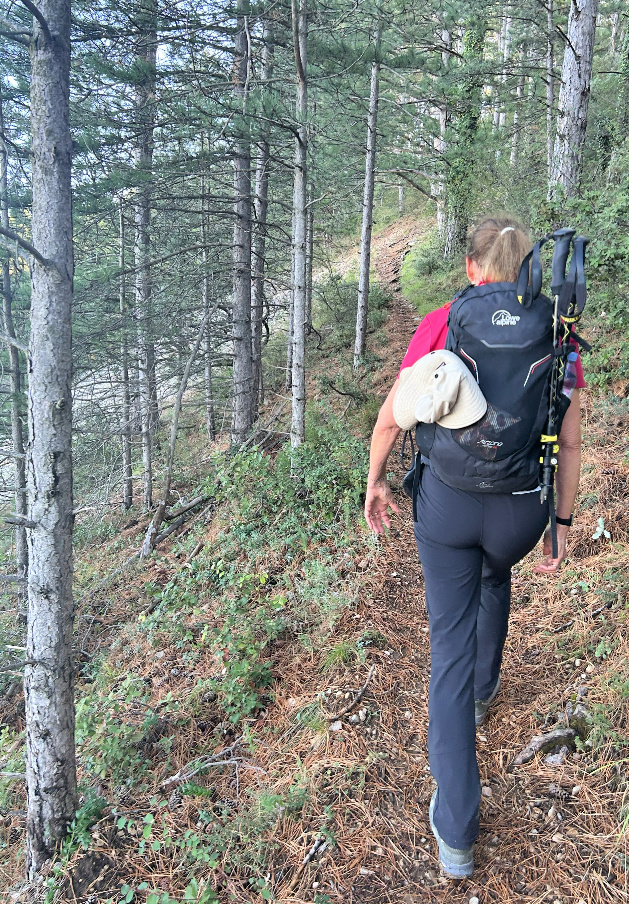
|
|
Trail below Chapelle Piaud
|

|
| Near Combe Obscure |

|
|
Glimpse of Mont Ventoux
|

|
|
Ridge above Malaucène
|

|
|
View to south from the ridge
|
The final descent to the lake was steep. We then crossed a parking area,
still following the GR de Pays markings, climbed a bit before turning
northeast where we met the angry dogs. We came to a crossroads near
Font Mourèle, headed north while the GR de Pays trail turned
left. We continued along a narrow paved road to the N938 road, crossed it
and followed yellow markings. The trail made a small detour passing some
vineyards before merging with another paved road, and we climbed along it to
Saint-Michel by the N938 road. To avoid the busy road, our itinerary
forked left and we descended along a paved road about 1,2 km then turned 90°
right (east) then up to Col de Ronin (371 m) where we finally had
Malaucène in sight.
However, the direct pedestrian route (Chemin du Col de Ronin) was
blocked due to construction, and we had to follow the busy N938 down to the
town centre. All in all, we would recommend an out and back hike, having for
example the Chapelle du Paty as a turning point.

|
|
Descent from Malaucène ridge
|

|
|
Near Chapelle du Paty
|

|
| Chapelle du Paty |
Climb: 660 m
Distance: 16,5 km
Duration: 5h 40
Map: IGN 3040 and 3140 ET

|
|
Malaucène loop track
|
The following recipe is a visual delight! If you cannot find good fresh mussels, you can replace them with peeled prawns. We prefer French mussels from Bretagne or Normandy.
2 servings
About 700 g fresh quality mussels
olive oil
1 shallot, chopped
1 clove garlic, minced
150 ml white wine
Freshly ground black pepper
2 tbsp. crème fraiche, 15 % fat
Orzo for 2 servings
About 6 small broccoli bouquets
About 80 g salmon roe in a jar
A few sprigs of parsley to decorate
Start by making the sauce. Warm 2 tbsp. olive oil in a small saucepan over medium heat. Sauté the shallot and garlic for about 5 minutes. Add the white wine and black pepper and cook until reduced by half.
Cook the orzo according to the advice on the package. Drain and return to the saucepan. Pour the white wine sauce to the saucepan with orzo and mix. Cover and keep warm. Stir in the crème fraiche just before serving.
Wash the broccoli bouquets and cook in a small amount of boiling water until soft. Drain and return to the saucepan. Cover and keep warm.
Wash the mussels in running water. Discard any with damaged shells or which do not close if banged hard on the kitchen sink. Warm 2 tbsp. olive oil in a large heavy saucepan over medium-high heat. Add the mussels and cover. When steam starts forming cook for 4- 6 minutes until the mussels have opened. Take them from the saucepan with a slotted spoon. Remove the mussels from their shells and discard any that have not opened.
Divide the orzo and its sauce in the bowls. Add the mussels and broccoli. Dot with salmon roe and decorate with parsley sprigs.
The picturesque village of Gigondas in the Vaucluse Department is famous worldwide for its excellent wine. The following hike suggested in the TerraRando guide offers great views down to the village as well as the Dentelles and the vast Rhone River Valley.
 |
| Gigondas main street |
 |
| Chemin de la Canal |
 |
| Crossroads near vineyard |
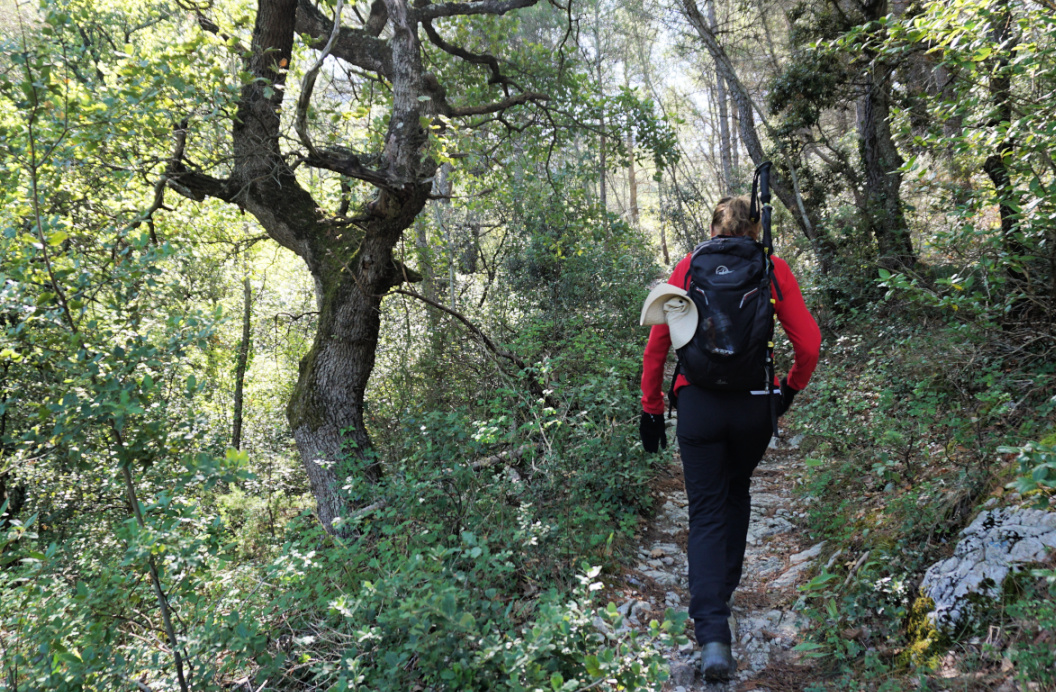 |
| Climbing to Col du Cayron |
We opted for the shorter version of the hike. Starting from the main square, we followed Rue Eugène Raspail less than 200 m, forked right at the signpost showing Col du Cayron, Les Hospices etc. and soon continued along Chemin de Font Saine. After almost 1 km from the start, the shorter itinerary forked right just before a small vineyard. We ascended along a narrow trail, now heading south. Following the signs and markings, we eventually reached a wide track and climbed to Col de Cayron (394 m).
We forked right (west) still along a wide track, and reached a crossroads after 1,1 km where we took a detour (some stairs) to Rocher du Midi (470 m), the highest point of this hike with great views of the surrounding landscape.
We descended to Chemin des Dentelles de Montmirail (partly paved) and followed it back to the village.
It was a perfect morning hike and we were back for lunch in one of the Gigondas restaurants.
 |
| Dentelles above Gigondas |
 |
| Hills above Gigondas |
 |
| Stairs to Rocher du Midi |
 |
| Rocher du Midi Gigondas |
Distance: 6 km
Climb: 250 m
Duration: 2 h
Le bistrot is a simple restaurant offering classic and moderately-priced dishes which are well-made and often from local ingredients. Any salad with green beans and vinaigrette from olive oil and moutarde à l’ancienne, old-style mustard, could be called bistrot.
This salad is great to make in autumn and winter when we crave more cooked dishes. In France, the green beans are in season all year round.
2 servings
2 full handfuls of fresh green beans
6 slices of Parma ham
About 12 cherry tomatoes
About 12 radishes
2 eggs
8 black olives
Rocket leaves to decorate
For the vinaigrette:
3 tbsp. olive oil
1 tbsp. lemon juice
1 tbsp. moutarde à l’ancienne
Freshly ground black pepper
Chopped fresh herbs such as parsley, dill, chives and so on
Cook the eggs 6 minutes in boiling water. Peel and set aside.
Top and tail the green beans. Cook 5 minutes in boiling water, then drain and cool in cold water to preserve the colour. Set aside to dry.
Wash and dry the cherry tomatoes and radishes. Cut the cherry tomatoes in halves and slice the radishes. Set aside.
Make the vinaigrette by whisking together all the ingredients. Divide into smaller bowls and serve separately on the salad plates.
Divide the green beans, cherry tomatoes, radish slices, and black olives on the plates. Top with the eggs and cut them in halves. Place the Parma ham among the salad. Sprinkle with some rocket leaves and place the vinaigrette bowl on the plates. Serve with some country bread or rye bread for a balanced meal.
The smaller of the two inhabited Lérins islands, St-Honorat, can be reached from Cannes Harbour by a regular boat shuttle. It is a tranquil spot outside of the busy Riviera where no cars or even bikes are allowed.
The monks of the Lerins Abbey have lived on the island for 16 centuries. They produce renowned wine using ancestral methods mainly from Clairette, Chardonnay, Viognier, Syrah, Mourvèdre and Pinot Noir varieties grown in their 8 hectare vineyard.
 |
| Cannes Harbour |
 |
| Leaving Cannes |
 |
| St-Honorat trail |
The boat from Cannes took 15 minutes. It was a super autumn day with clear skies and pleasant temperatures. A regatta took place in Cannes on the day of our visit and the harbour was busy. However, most of the Lérins islands’ visitors went to the larger Saint Marguarite Island.
 |
| Cannes seen from St-Honorat |
 |
| St-Honorat southern shore |
 |
| Monastery tower St-Honorat |
We started with a walk around the island (40 min) along the wide path following the shoreline. Walking anticlockwise, we stopped at the sole restaurant named La Tonnelle to reserve a table for lunch. We circled around the western tip of the island and headed towards the Abbey. Our timing coincided with a Mass and we did not visit the Abbey or its garden. The fortified monastery was closed for renovation. We explored the shop and bought a bottle of organic white (St.Pierre 2022, 4100 bottles produced; Clairette and Chardonnay grapes in addition to a little Rolle).
We continued to the eastern tip in a pine forest before returning to our starting point and the restaurant for lunch.
 |
| Abbey Garden St-Honorat |
 |
| St-Honorat eastern tip |
 |
| St-Honorat vineyard |
 |
| Abbey of Lerins white |
This colourful salad plate with Italian antipasti flavours makes a nice lunch on a warm autumn day when the basil and local tomatoes are still in season.
The day before cook slices of courgette and red bell pepper in olive oil in a grill pan. Cover and let marinate overnight in refrigerator.
2 servings
4 slices of grilled and marinated red bell pepper
2 slices of grilled and marinated courgette
Olive oil
4 slices of cantaloupe melon
4 slices of Parma ham
2 tomatoes, chopped
8 black olives, pitted and sliced
About 250 g ricotta
2 handfuls of rocket
Freshly ground black pepper
Olive oil vinaigrette
Fresh basil to decorate
Place the chopped tomatoes in a bowl with 1 tbsp. of olive oil, and the sliced black olives. Mix and let marinate for a few minutes.
Divide the ricotta in a nice heap in the middle of the plates.
Arrange the grilled antipasti vegetables in one corner of the plates.
Divide the cantaloupe slices on the plates and top with Parma ham.
Place a heap of rocket in one corner of the plates and the marinated tomatoes in their corner.
Grind over some black pepper and sprinkle with olive oil vinaigrette. Decorate with basil. Serve with some good country bread for a balanced meal.
Stuffed bell peppers is a classic Mediterranean dish. The stuffing used to be made from ground lamb or a mixture of lamb and beef. Nowadays it could be made from vegetables and sausages or vegetables and some cheese.
In this recipe, the stuffing is a rich and thick Bolognese sauce made from beef, herbs, and tomato paste. The bell peppers are served on a bed of creamy orzo or other small shape pasta.
2 servings
2 large red bell peppers
Olive oil
Orzo for 2 servings
1 tbsp. crème fraiche 15 % fat or cream
For the Bolognese:
About 250 g ground lean beef
1 shallot, chopped
1 clove garlic, minced
olive oil
150 ml chicken stock
3 tbsp. organic tomato paste
1 tsp. dried Provençal herbs
Freshly ground black pepper
Chopped basil to decorate
Start with the Bolognese. Warm 2 tbsp. olive oil in a heavy sauté pan and lightly brown the ground meat. Add the shallot and garlic and continue sautéing for about 5 minutes.
Add the chicken stock, tomato paste, herbs, and black pepper and mix well. Let simmer for about 10 minutes.
Preheat the oven to 200° C roast.
Wash and dry the red bell peppers. Cut “hats” from the stem ends and remove the seeds. Fill the peppers with the Bolognese.
Oil a small oven-proof dish with olive oil. Place the bell peppers in the dish with their decorative “hats” on the side. Roast for 20- 30 minutes until the peppers are soft.
Meanwhile cook the orzo according to the advice on the package. When the pasta is done, drain it and return to the saucepan. Mix in the crème fraiche.
Divide the orzo on the plates and place the red bell peppers on top. Decorate with basil.
This delightful walk starts from the parking facing the harbourmaster’s
office, next to the Antibes old town.

|
|
Port and Fort Vauban
|
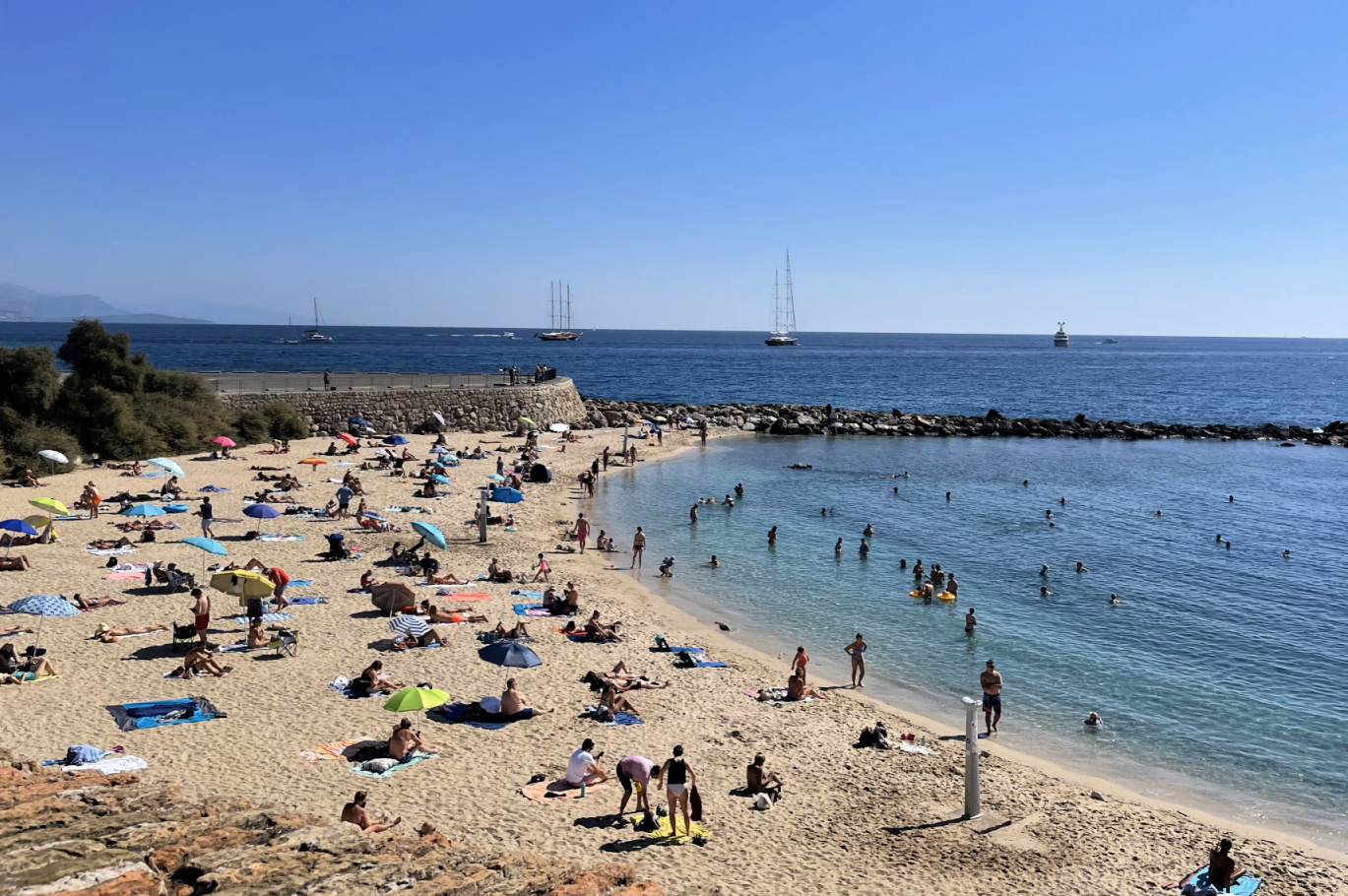
|
La Gravette Beach Antibes
|
We started along the seafront, passing the Picasso Museum then the
Albert 1er Square. We reached Plage du Ponteil where we
forked right, crossing the Ponteil Park and followed Boulevard du Cap then
Chemin des Sables over the peninsula to Juan-les-Pins. Juan-les-Pins is
today part of the City of Antibes.

|
| Antibes seafront |

|
|
La Pinède Juan les Pins
|
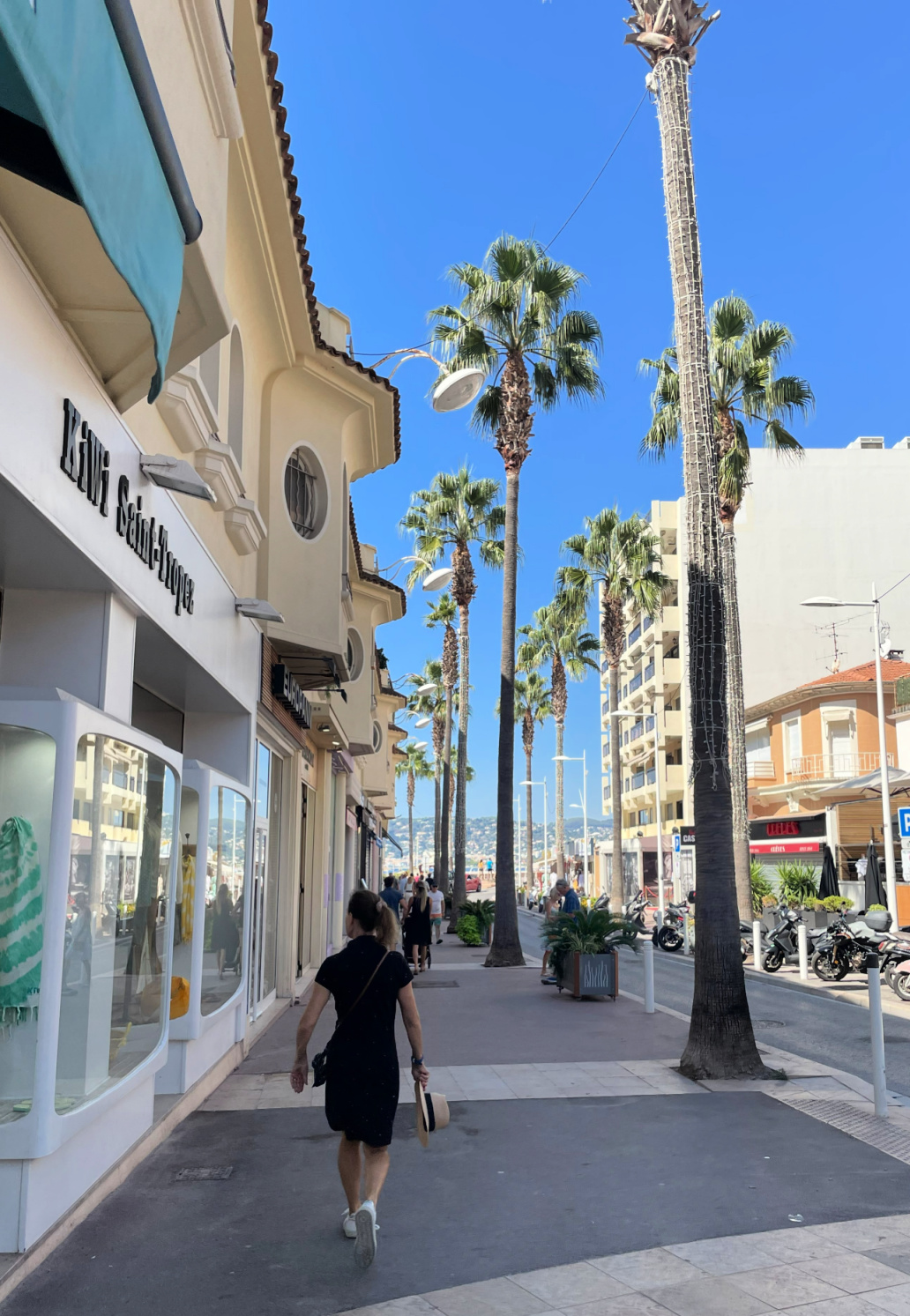
|
|
Av Georges Gallice Juan-les-Pins
|
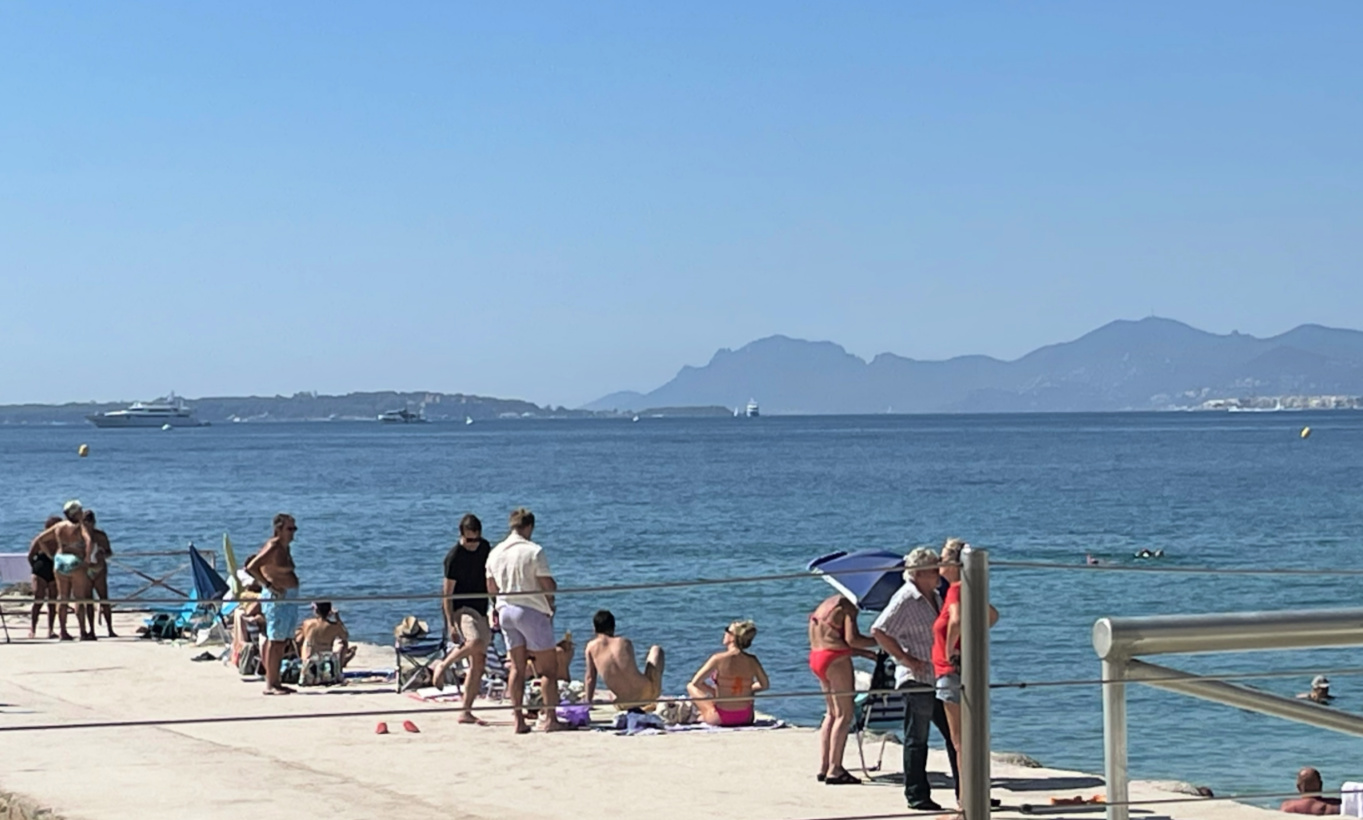
|
| Golf Juan |
We passed tranquil upscale residences before reaching Juan-les-Pins.
There was still a lot of activity on the warm early autumn day of our walk.
We walked through la Pinède where the renown jazz festival is held each
July.
Our timing was perfect for lunch at one of the restaurants facing Golf Juan,
with views towards the Esterel mountains and Lérins islands. Needless
to say, we chose seafood!
Distance: about 7,5 km ↔
Duration: about 2 h
Climb: about 55 m ↔
This recipe is inspired by a lunch we once had in
Bar des Oiseaux in Nice. There, the small cuttlefish was fried
with cooked orzo and some rocket leaves were added to the dish. Simple but
effective.
Because fresh small cuttlefish can be difficult to find I have replaced it
with a small package of frozen mixed seafood, Fruits de Mer. According
to the advice on the package, defrosted mixed seafood only need 4 minutes in a
hot frying pan. If you cannot find orzo, you can replace it with similar small
pasta shapes resembling large rice grains.
2 servings
Orzo for 2 servings
A small package, about 400 g, defrosted mixed seafood
1 shallot, chopped
1 clove garlic, minced
½ tsp. Piment d’Espelette or other mild chilli
3 tbsp. olive oil
2 handfuls of baby rocket leaves
Warm 2 tbsp. olive oil in a sauté pan over medium heat and cook the shallot
and garlic about 10 minutes until soft but not brown. With a slotted spoon,
remove from the pan and set aside.
Meanwhile cook and drain the orzo according to the advice on the package. Set
aside.
Add 1 more tbsp. olive oil in the sauté pan and increase the heat to
medium-high. Cook the defrosted seafood for 4 minutes stirring
frequently.
Add the orzo and Piment d’Espelette in the sauté pan and cook for a minute or
two stirring all the time until the orzo is well coated with oil.
Add the shallot, garlic, and rocket to the pan and mix well. Divide on the
plates and serve.















































